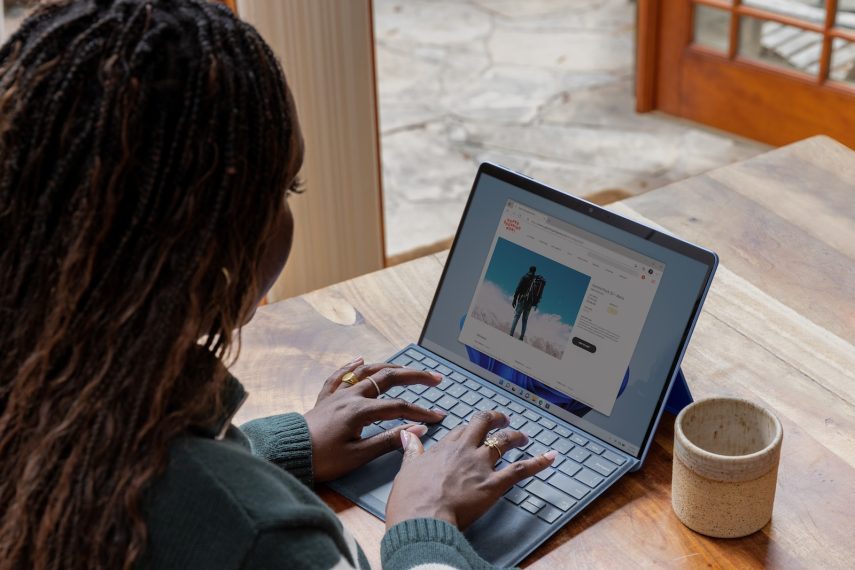You’ve likely come across the term “blog” in your internet travels. But what exactly is a blog? What does it stand for? Why is it different from a vlog? You’ve got questions and here, we’ve got answers.
The concept of a blog is no longer a novelty. Blogs have grown from being a fringe internet subculture to a mainstream communication tool. Yet despite their omnipresence, many people find the idea of blogging a bit confusing.
Whether you’re a budding blogger, an avid blog reader, or a complete novice, this guide is meant for you.
So, what does blog stand for?
The word “blog” is a contraction of the term “weblog”. The term “weblog” was coined by Jorn Barger in December 1997. He used it to describe his online diary, where he logged his daily web activities. Shortly after, Peter Merholz jokingly split the word weblog into the phrase “we blog”, and that’s how the term “blog” came to be.
The evolution of blogging
The first blogs were essentially online diaries, where individuals would share their personal experiences and thoughts.
Blogs have come a long way since their inception. In the early days, blogs were primarily personal diaries, a digital space for individuals to share their lives and thoughts. Blogs could be about anything and everything, with no rules or guidelines to follow.
They were largely text-based and often informal in nature. In the late 1990s and early 2000s, blogging platforms like Blogger and WordPress emerged, making it easier for anyone to start a blog.
Fast forward a few years, and businesses began to realize the potential of blogs as a marketing tool. Company blogs emerged, providing a platform for businesses to connect with their audience, share updates, and offer valuable insights into their industry.
Over time, blogging platforms evolved, making it easier for anyone to start a blog. This democratization led to an explosion of blogs on every conceivable topic. Today, blogs are a fundamental component of the digital landscape, providing information, entertainment, and opportunities for interaction.
What is blogging?
Blogging is the act of writing and publishing content on a blog. It’s a way to share your thoughts, ideas, or knowledge about a particular topic with an online audience. But blogging isn’t just about writing; it’s about building a community, sparking conversations, and making connections.
A blog can serve different purposes for different people. For some, it’s a hobby, a creative outlet to express themselves. For others, it’s a business tool, a way to attract customers or clients. For many, it’s a mix of both – a passion that also brings in income.
Difference between a blog and a vlog
While a blog primarily features written content, a vlog (video blog) is a form of a blog that uses video as its main medium. Vlogs can be found on platforms like YouTube, Instagram, and TikTok.
Both blogs and vlogs are great ways to share content, but your choice between them depends on your comfort level, resources, and your audience’s preference.
Vlogging has gained immense popularity with the rise of platforms like YouTube. It offers a visual and more personal way of sharing content. However, whether you choose to blog or vlog depends on your comfort with the medium, the nature of your content, and the preferences of your audience.
Key components of a blog
Blogs typically consist of regular entries or posts. Each blog post generally has a title, body, author name, and post date.
Most blogs also feature a comments section for reader interaction, and Blog categories or tags for organizing content.
You can also expect to find other key pages that you’d find on a typical website such as an About page, a Contact page, and social media links.
Key components of a blog post
- A catchy title: The title is the first thing people will see, so it’s important to make it attention-grabbing and relevant to the content of your blog.
- A well-written introduction: The introduction should give readers a brief overview of what your blog post is about. It should be clear, concise, and interesting enough to make them want to read more.
- A well-organized body: The body of your blog post should be well-organized and easy to read. Use headings and subheadings to break up the text, and include images and videos to make your post more visually appealing.
- A strong conclusion: The conclusion should wrap up your blog post and leave readers with something to think about. It’s a good idea to include a call to action, such as asking readers to leave a comment or share your post on social media.
- Visual elements: Images, videos, and infographics can help to break up your text and make your blog post more visually appealing. They can also help to explain complex concepts or ideas in a more easily digestible way.
- SEO: Search engine optimization (SEO) is the process of optimizing your blog posts so that they can be found by people searching for information on the internet. There are a number of things you can do to improve your blog’s SEO, such as using relevant keywords and phrases in your titles and throughout your posts.
What does b in blog stand for?
While the term “blog” is widely accepted to be a contraction of “weblog”, some people may interpret the “b” as standing for “broadcast”. This could be because blogging often involves broadcasting or disseminating ideas, thoughts, and information on the internet.
The “broadcast” interpretation may simply be an attempt to assign a meaning to the “b” in “blog” that aligns with the function of a blog, but it is not technically accurate in terms of the term’s history and original meaning.
FAQs about blogging
How do I start a blog?
Starting a blog involves choosing a blogging platform such as WordPress, picking a blog name, registering a domain name, setting up hosting, and designing your blog layout.
How often should I post on my blog?
The frequency of posting depends on your goals and availability. Some bloggers post daily, while others post weekly or even monthly. The key is consistency. With the advent of generative AI, you need to be publishing more to remain competitive but don’t compromise on quality.
Can I make money from my blog?
Yes, you can. Many bloggers generate income through advertising, sponsored posts, affiliate marketing, selling products or services, and more. However, it requires time, effort, and a sizeable audience.
Do I need any special skills to start a blog?
Not necessarily. Basic computer skills and a passion for your blog topic are enough to get you started. However, as you go along, you might want to learn more about search engine optimization (SEO), digital marketing, and other aspects of online content creation.
Can a blog be about multiple topics?
Yes, it can. However, blogs that focus on a specific niche tend to perform better in terms of attracting a dedicated audience and ranking higher on search engines.
Is blog an acronym?
No, the term “blog” is not an acronym. It’s a shortened form of “weblog.” The term “weblog” was coined by Jorn Barger in 1997 to describe a log of information that someone posted on the web. In 1999, Peter Merholz shortened “weblog” to “blog.” So, while “blog” stands for “weblog,” it’s not an acronym in the way that, for example, NASA (National Aeronautics and Space Administration) is.
Examples of blogs
To give you a better sense of what a blog can look like and the range of topics they can cover, let’s take a look at a few examples:
- Personal blog: One classic example of a personal blog is Dooce, written by Heather Armstrong. One of the early adopters of blogging, Heather started her blog as a hobby and it has since evolved into a full-time profession. She writes about her life, her experiences, and her views on various topics.
- Business blog: HubSpot’s Blog is a great example of a business blog. They use their blog to share marketing, sales, and service advice that helps businesses grow. It’s a key tool for them to drive traffic to their site, generate leads, and position themselves as an industry leader.
- Food blog: Smitten Kitchen is a popular food blog written by Deb Perelman. She shares her adventures in cooking, complete with detailed recipes, high-quality photos, and personal anecdotes.
- Travel blog: Nomadic Matt is a well-known travel blog where Matt shares his tips and advice for budget travel based on his personal experiences traveling the world.
- Fashion blog: Man Repeller (now repeller) is a fashion blog that explores the fun and creative side of fashion. It’s not just about what’s in style, but about expressing yourself and having fun with your wardrobe.
- Fitness blog: Nerd Fitness is a fitness blog that takes a unique and fun approach to fitness and wellness. It offers advice and resources for people who feel like outsiders in the traditional fitness scene.
These are just a few examples, but there are blogs out there covering almost any topic you can imagine. This diversity is one of the things that makes the blogosphere so exciting and inclusive.
Remember, entering the world of blogging is a journey, one that can be immensely rewarding if embarked on with passion and patience. Now that you’ve got the basics down, why not take the leap? Who knows, you might just find a whole new world of connections and creativity waiting for you in the blogosphere.


